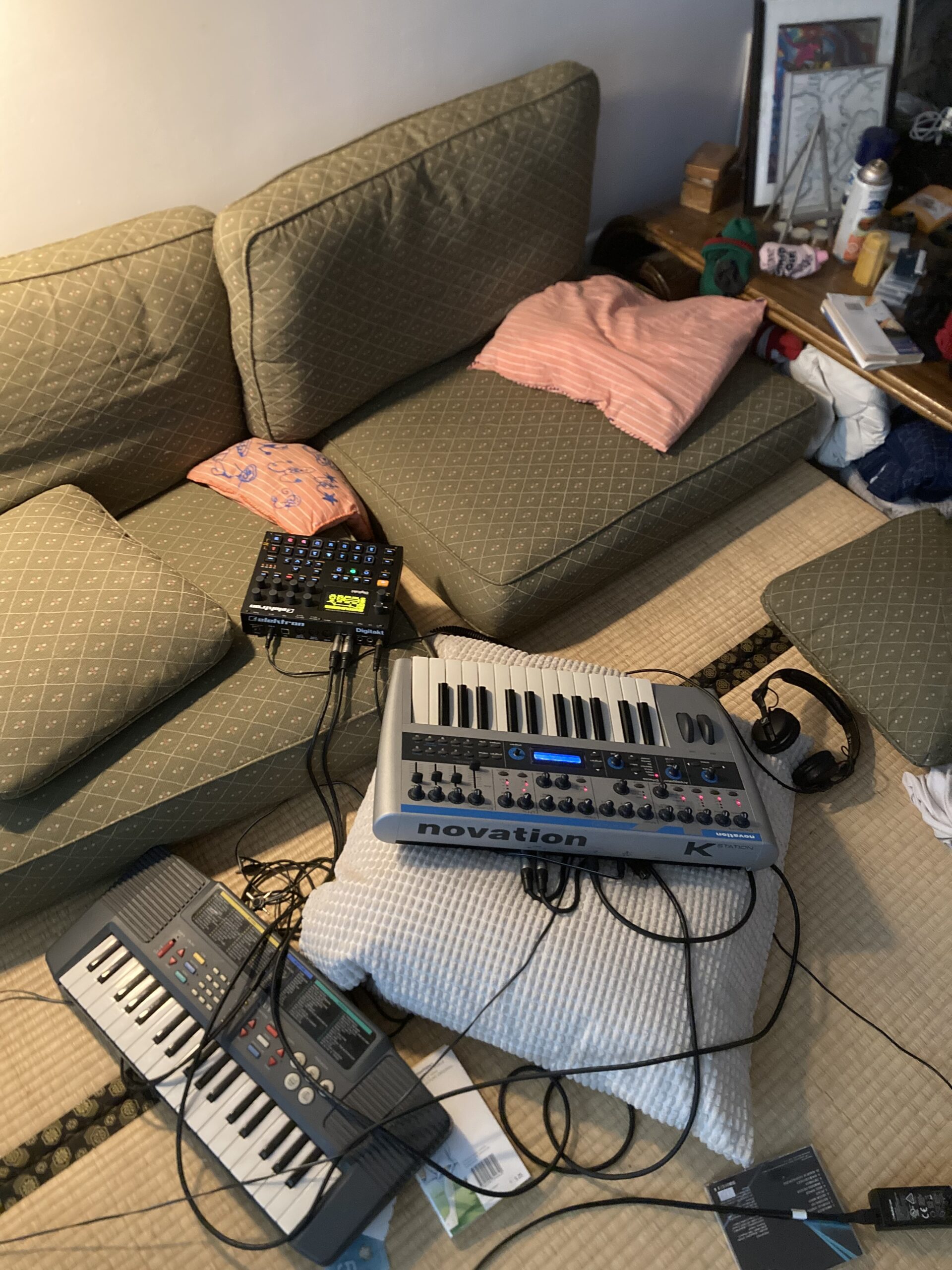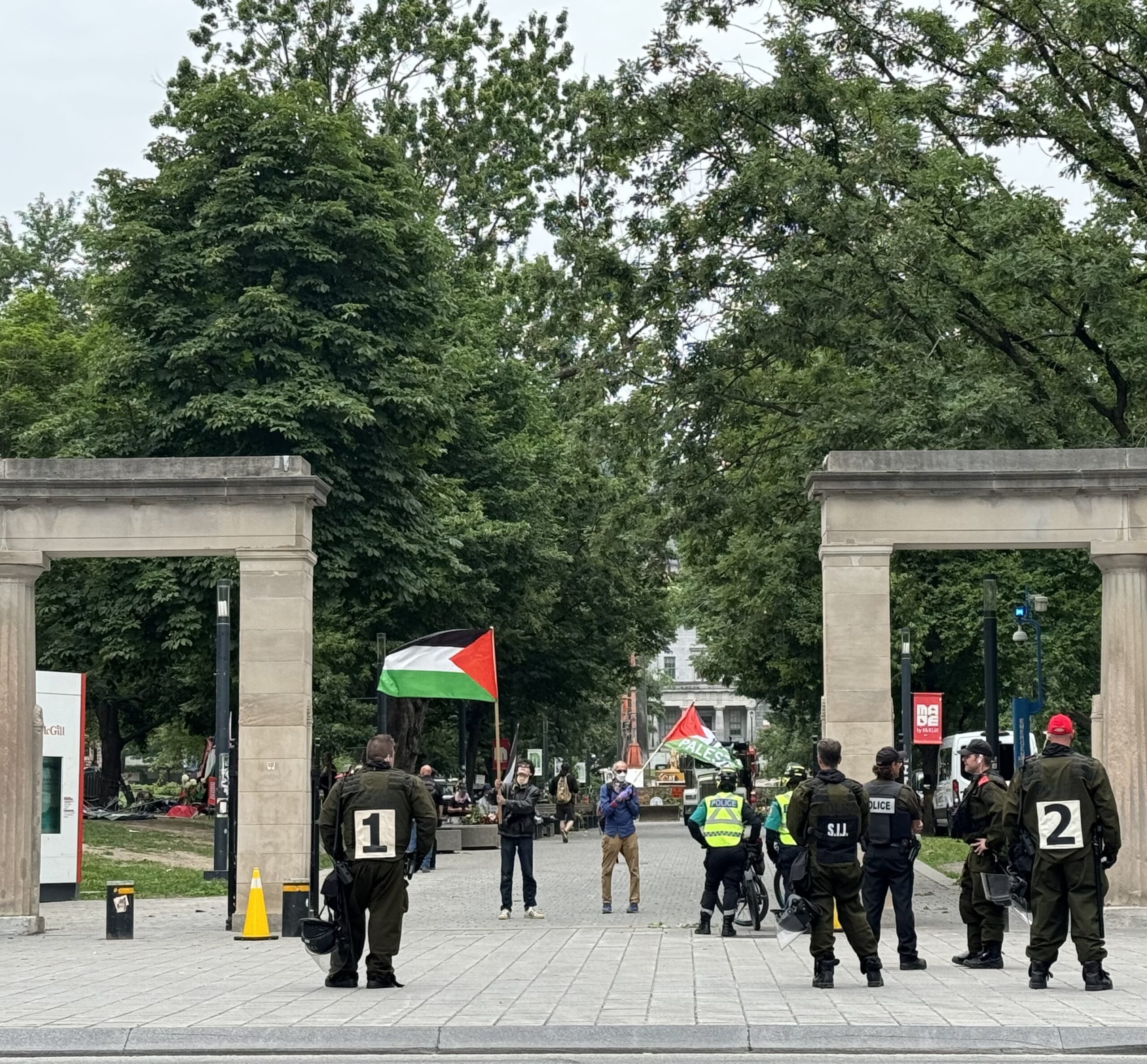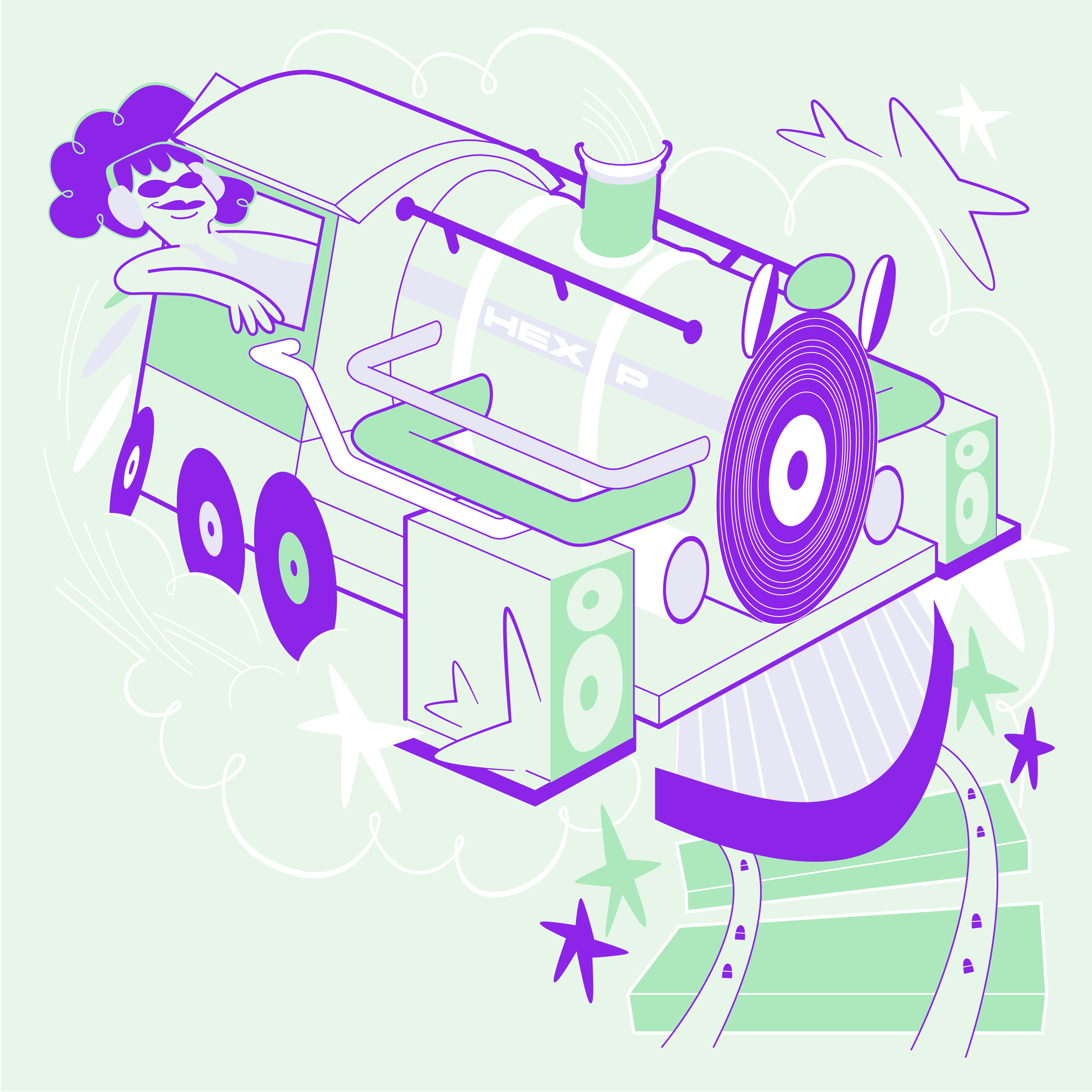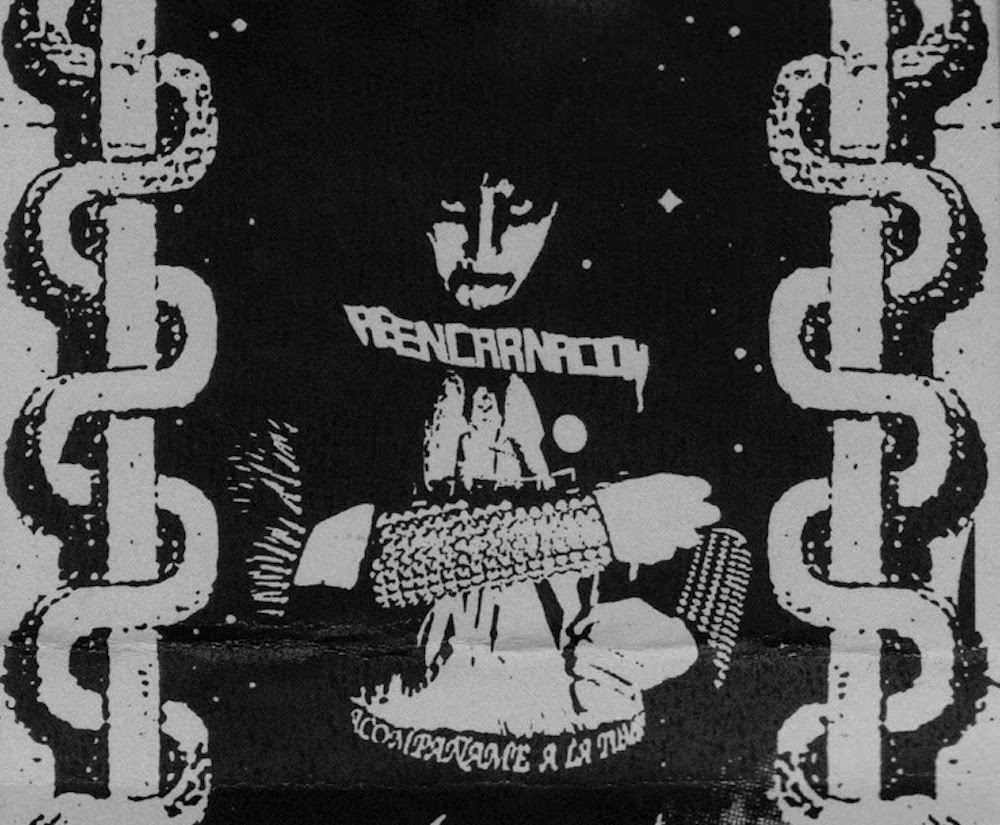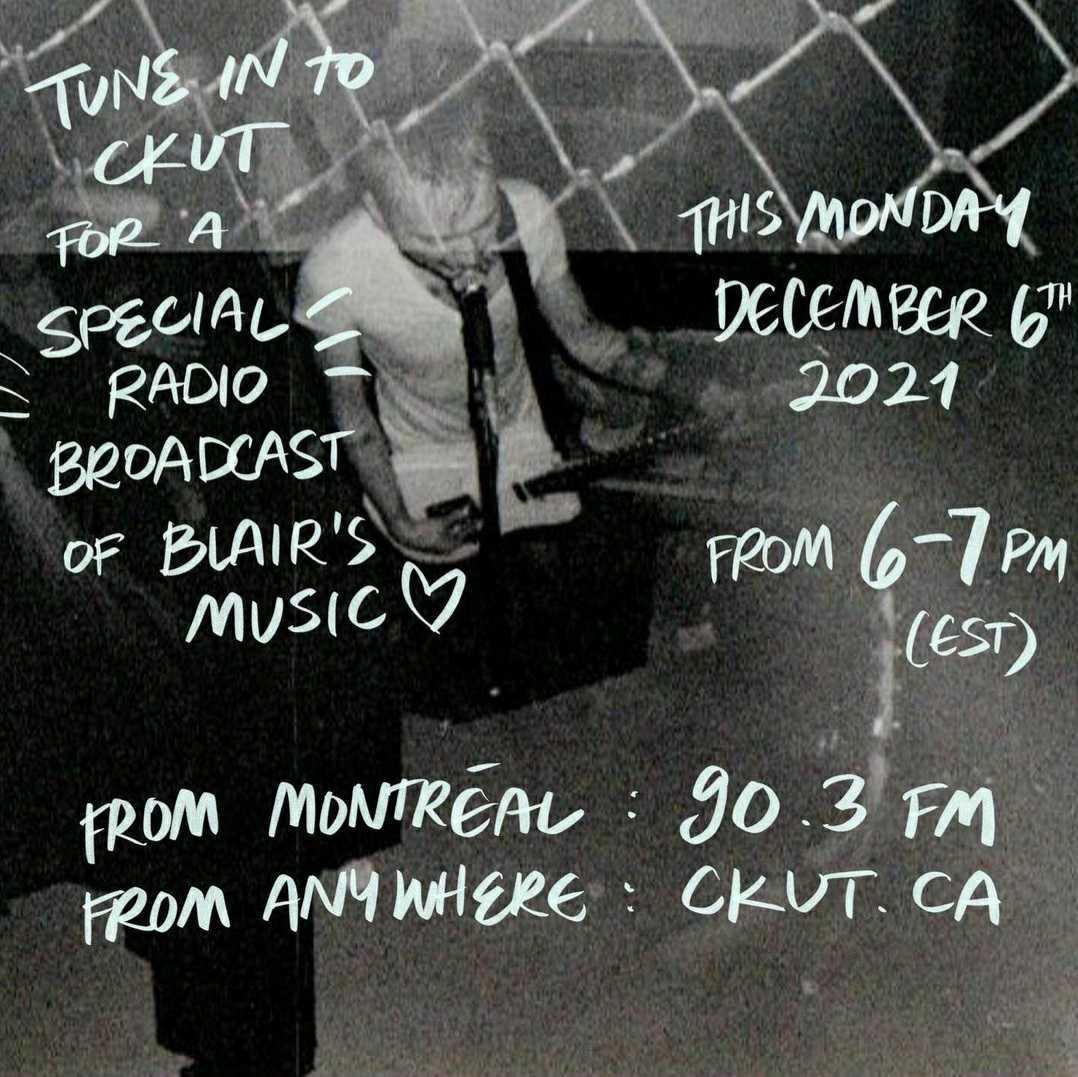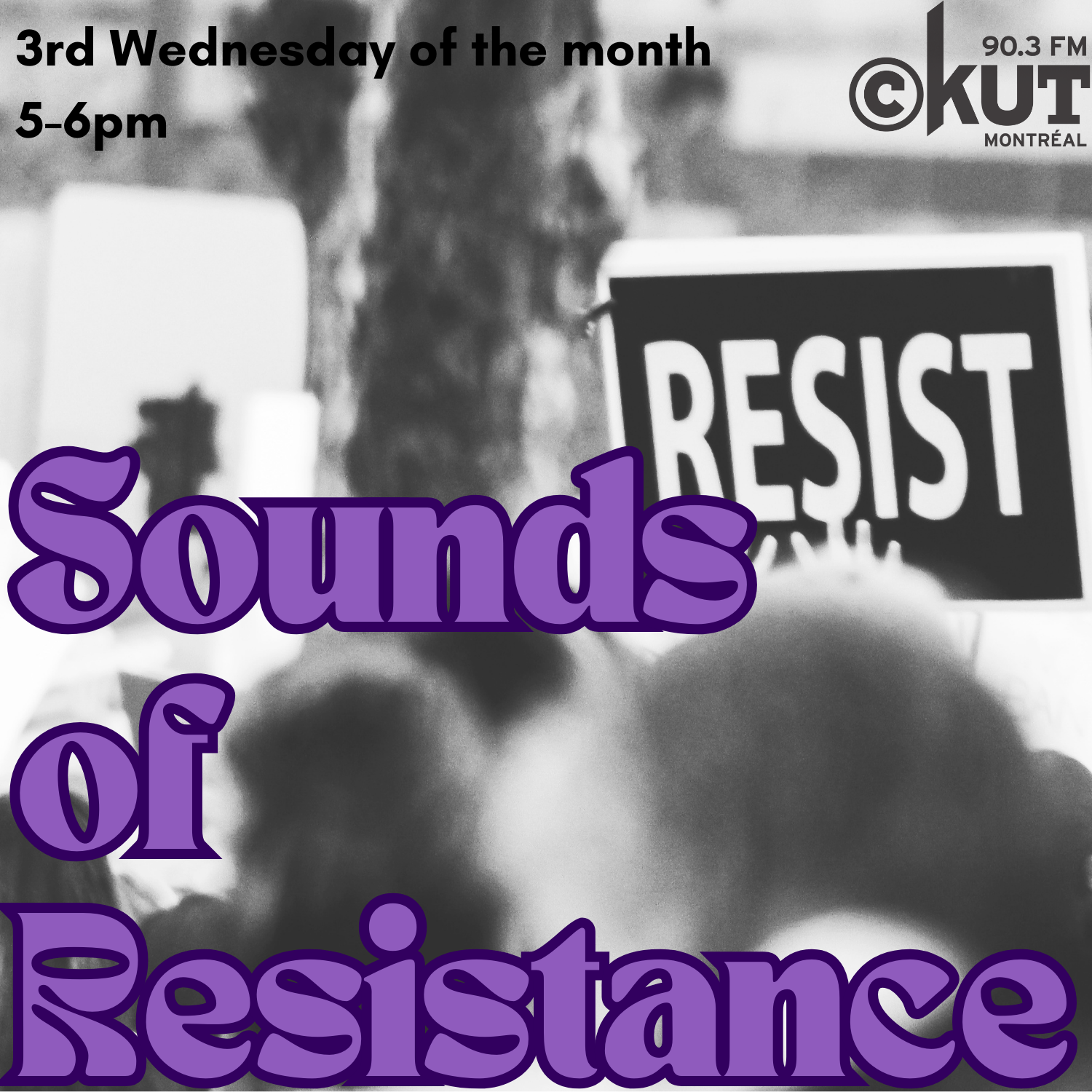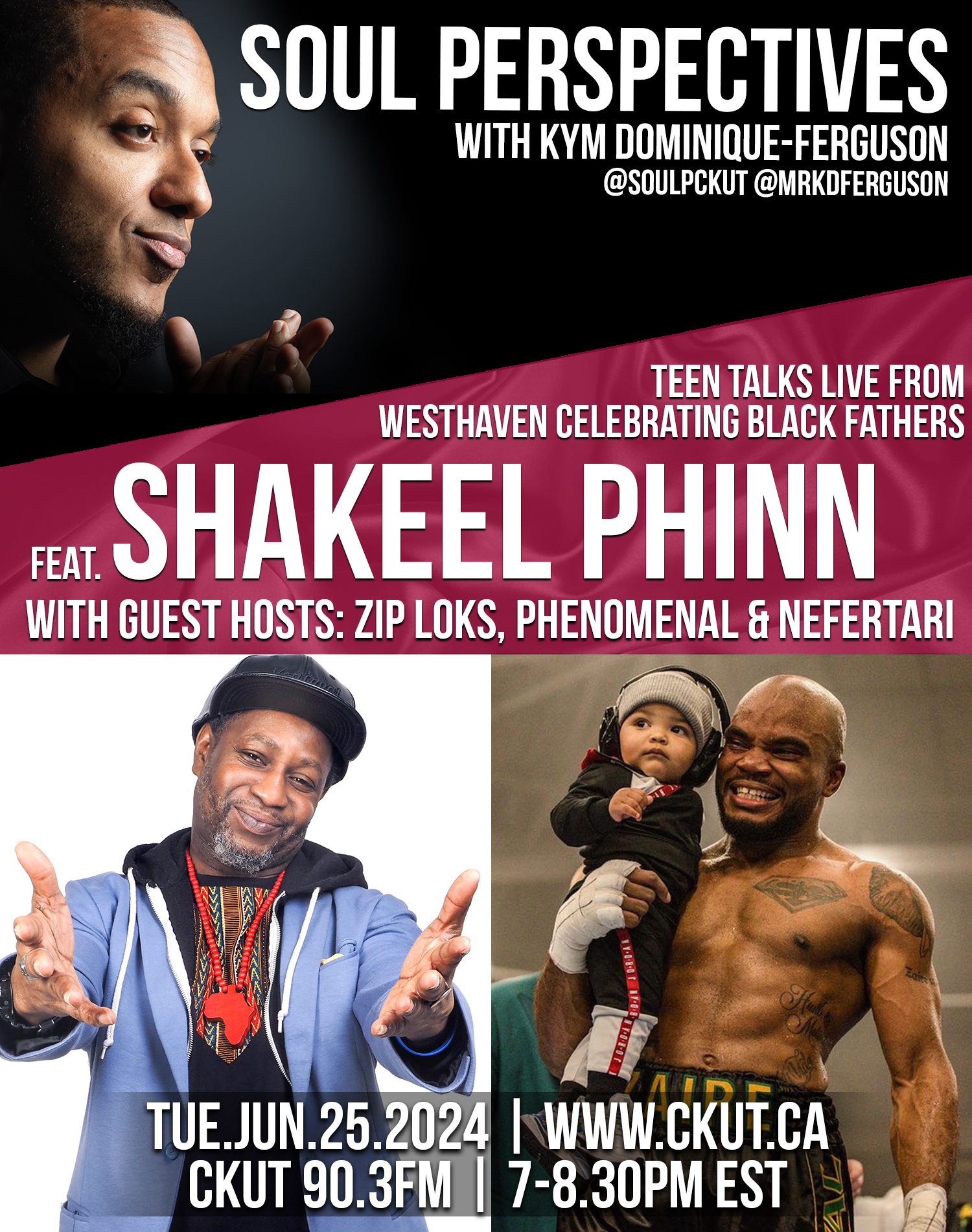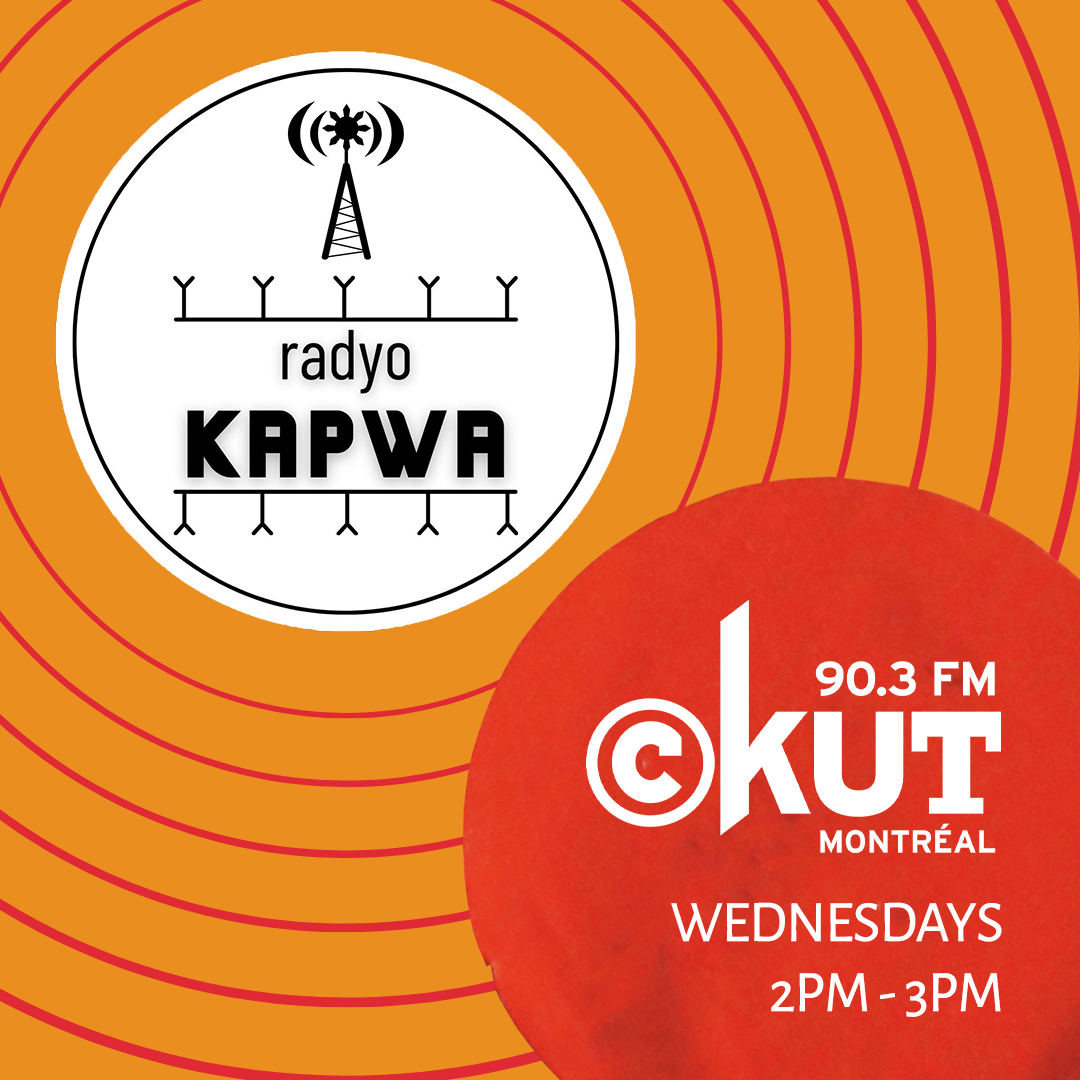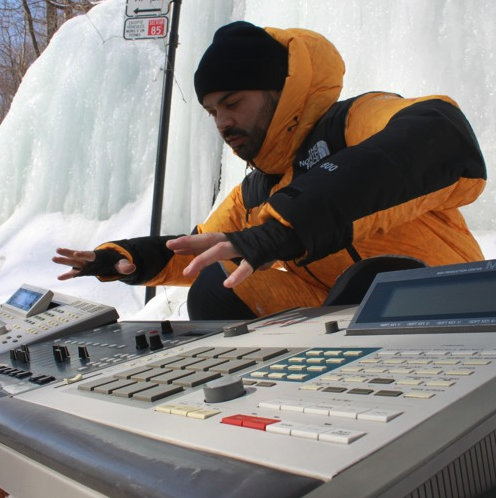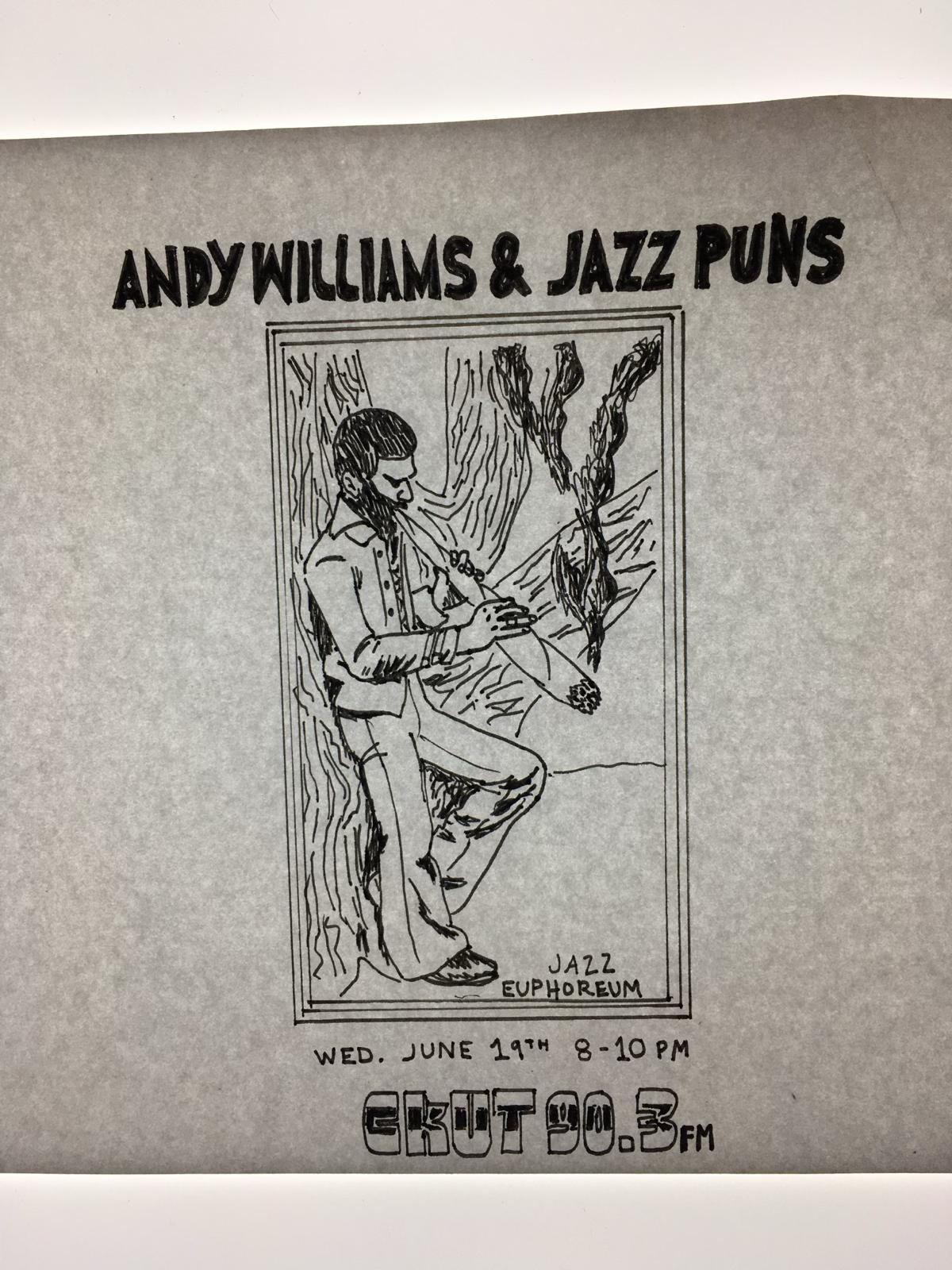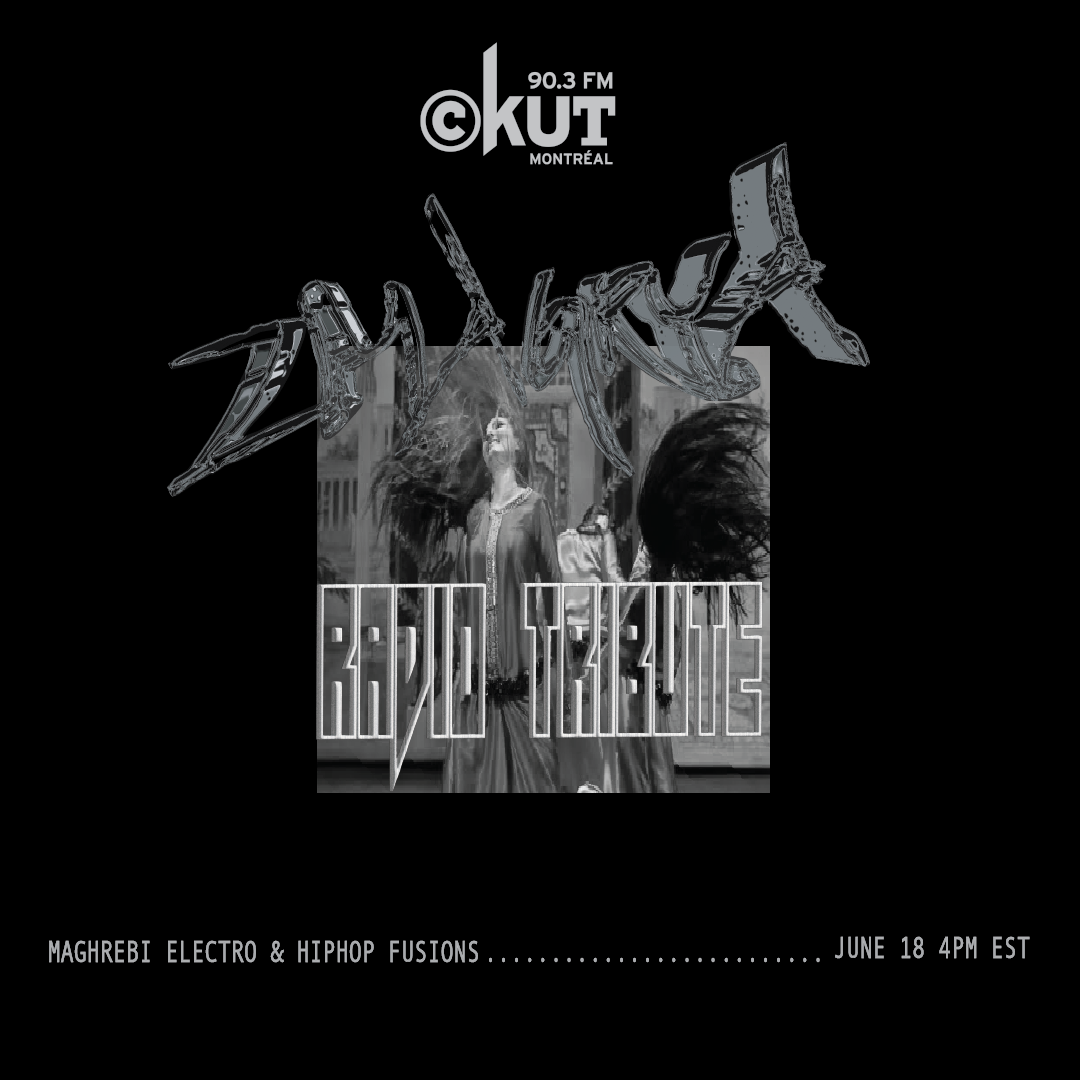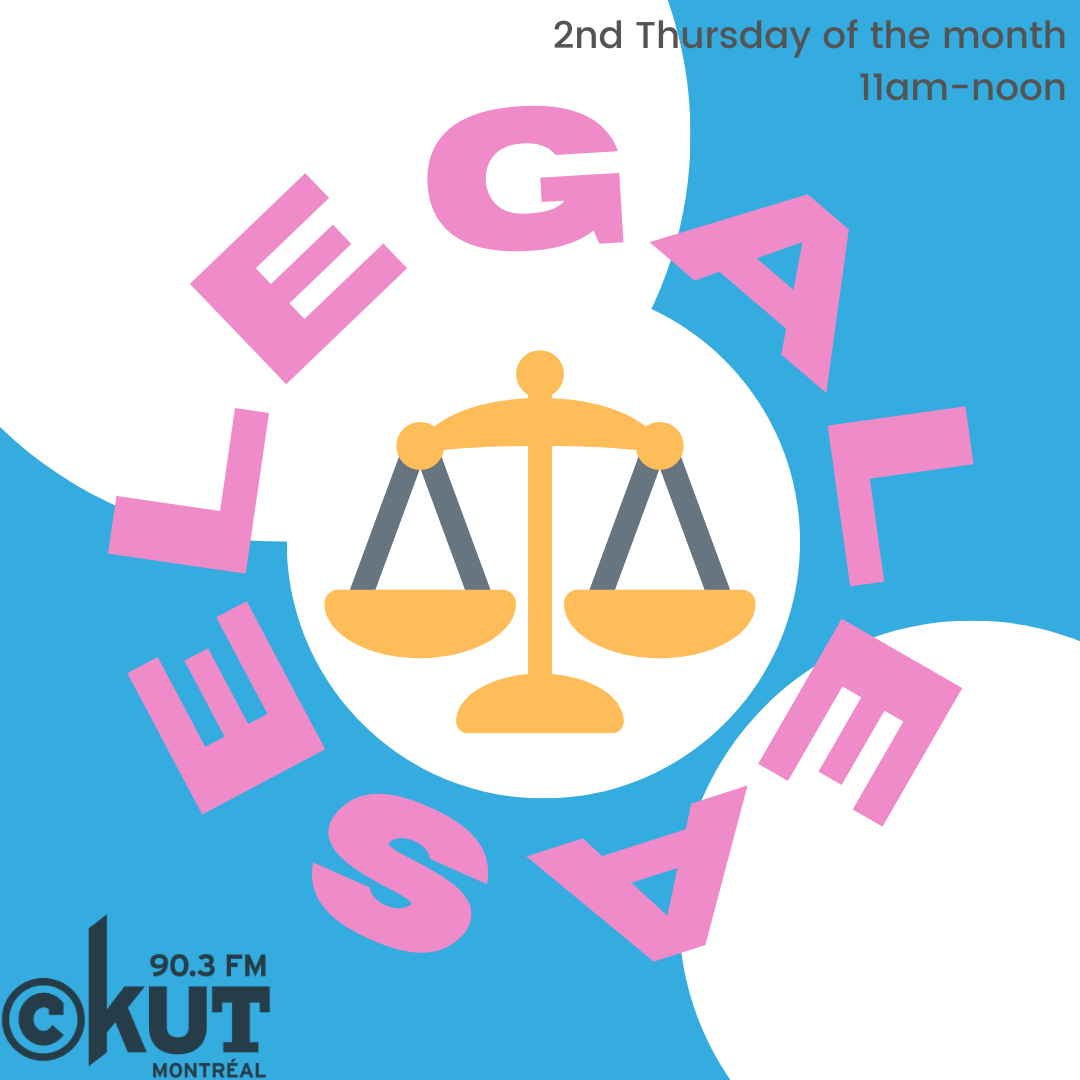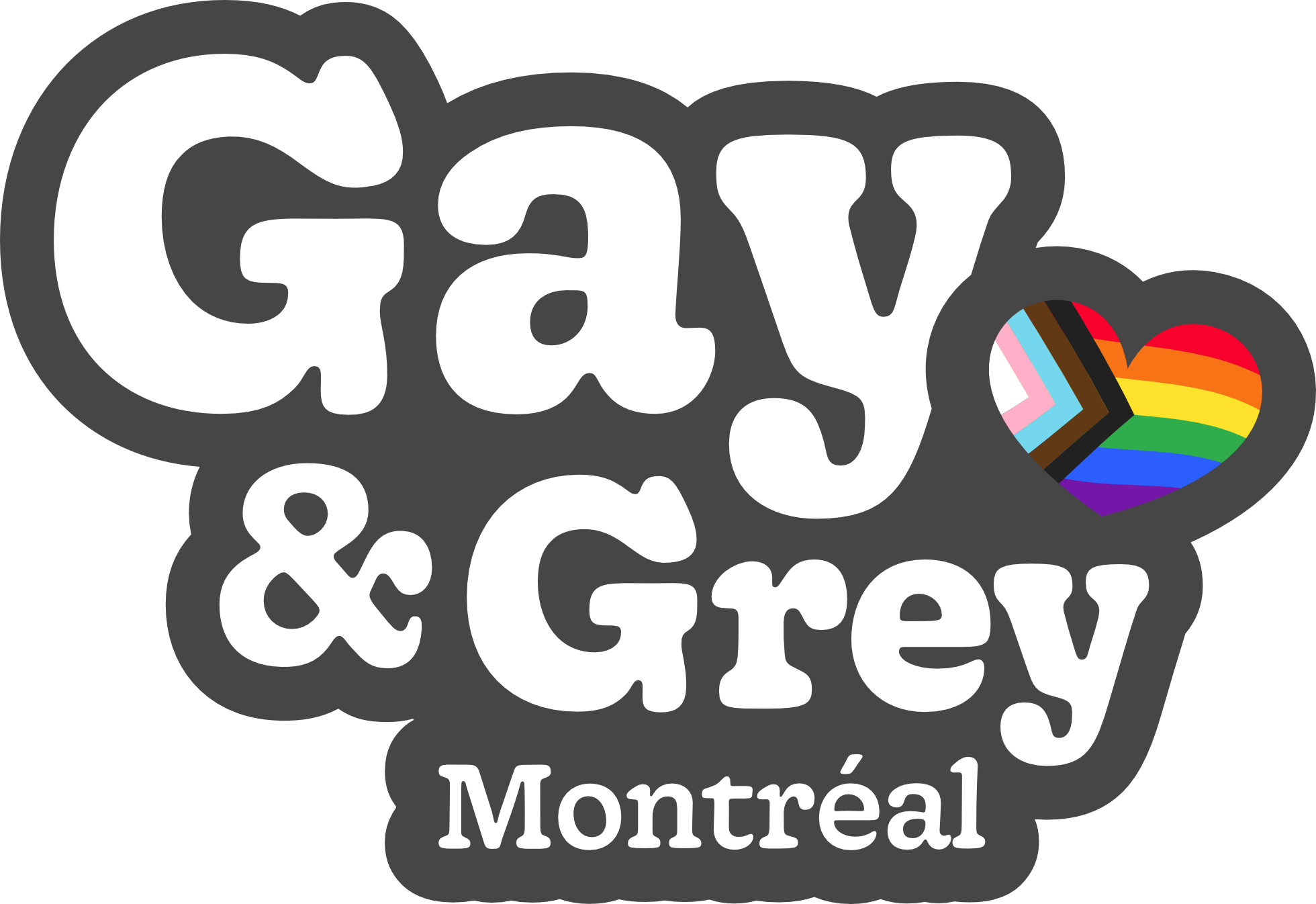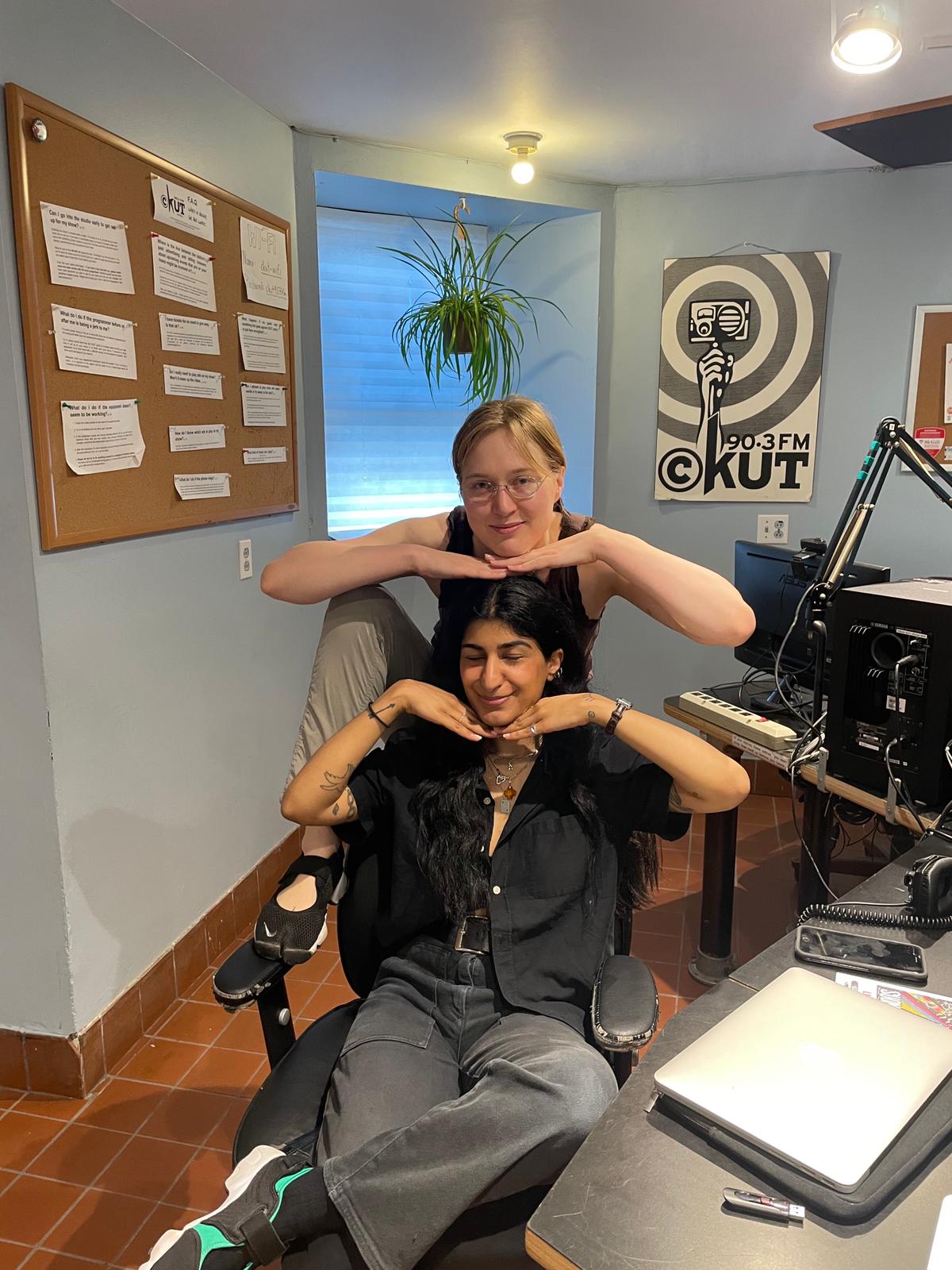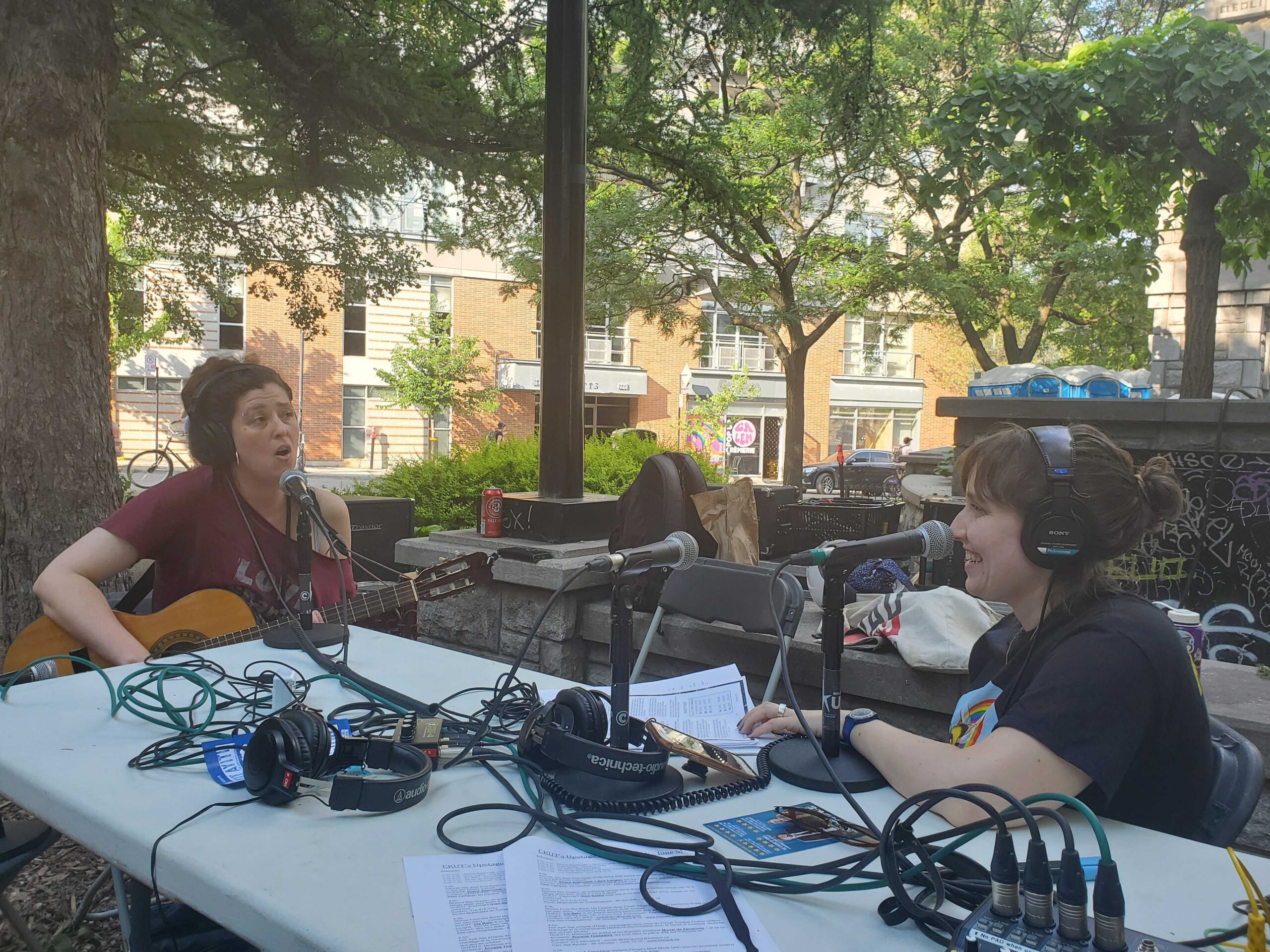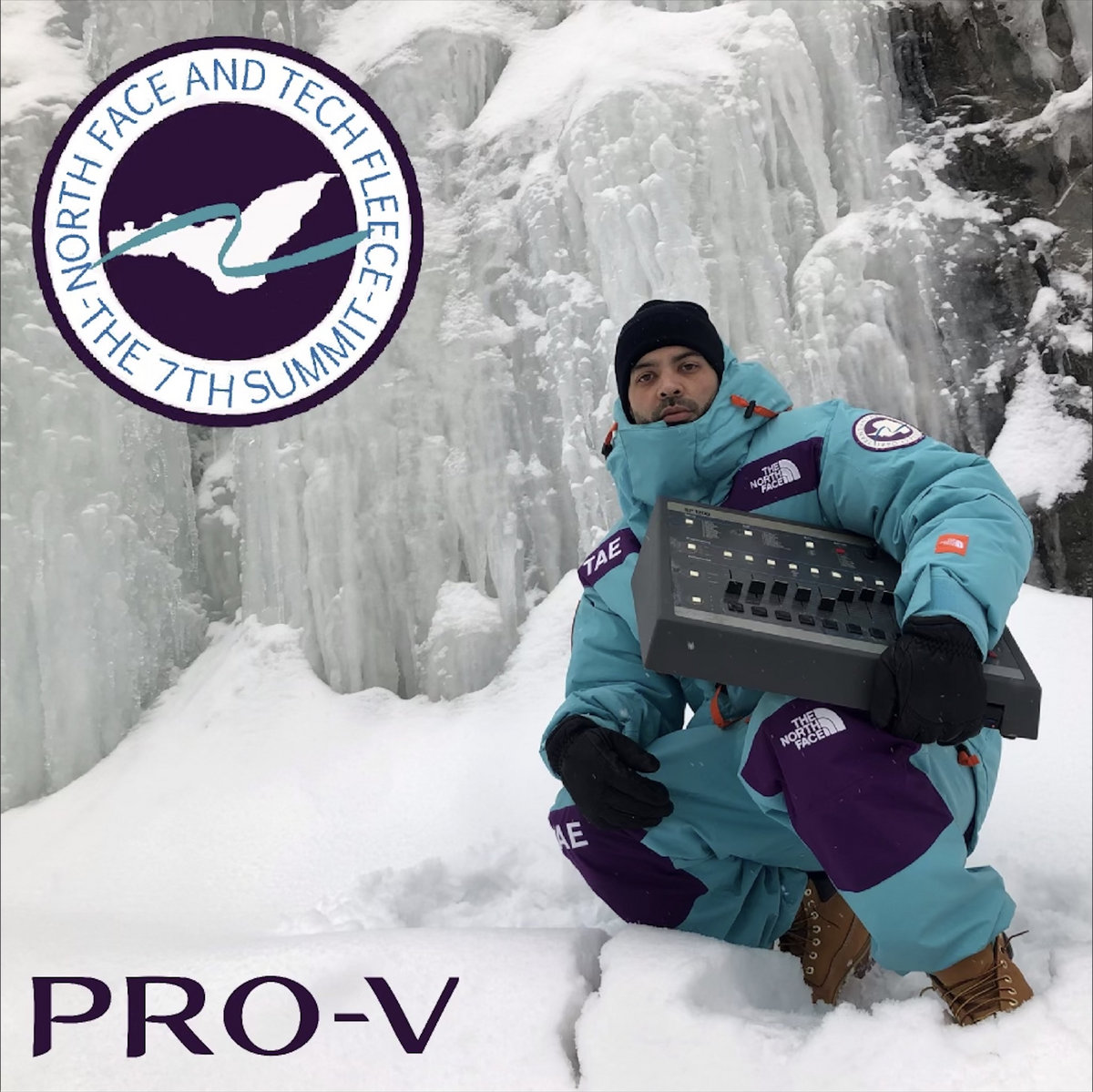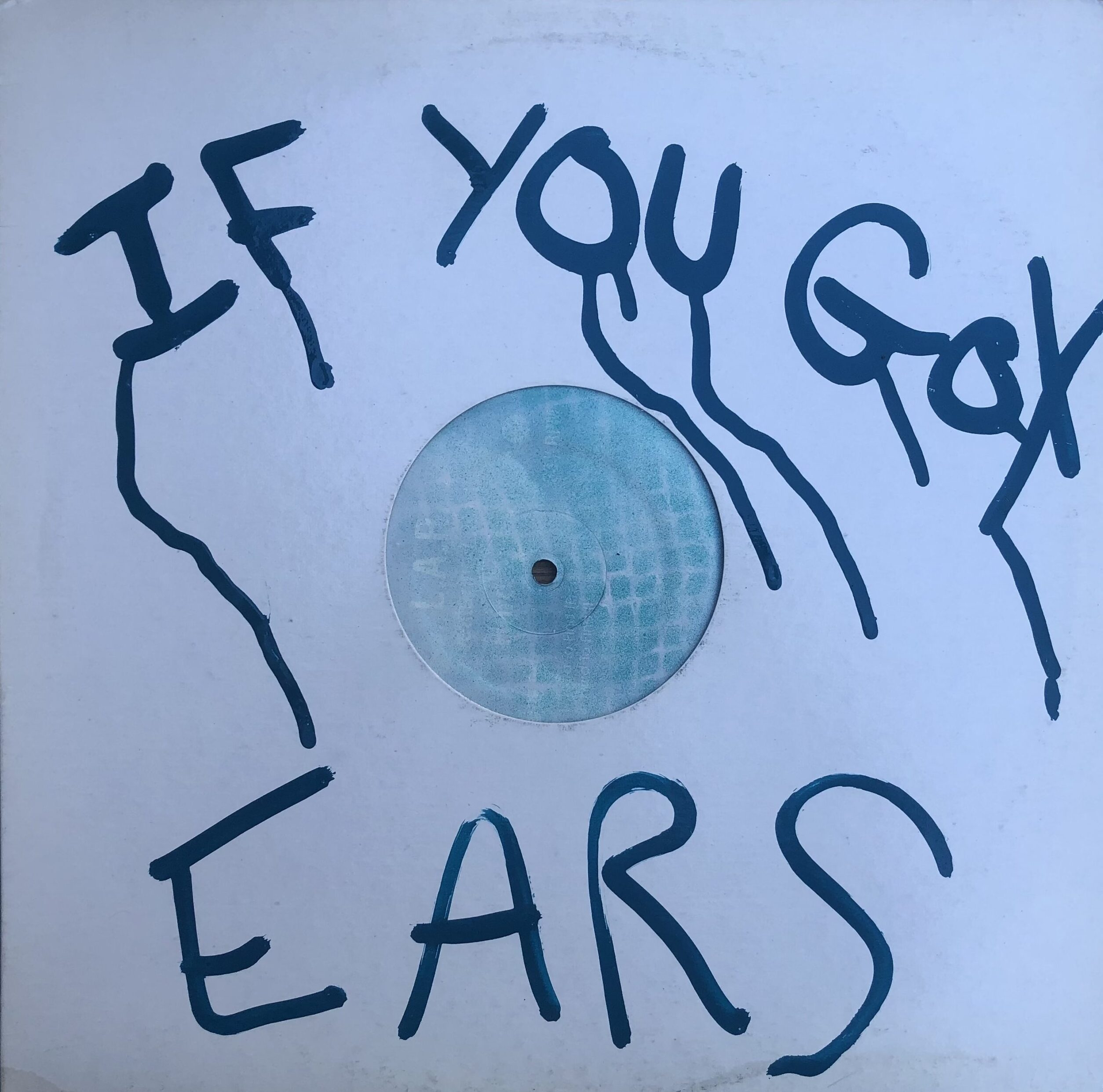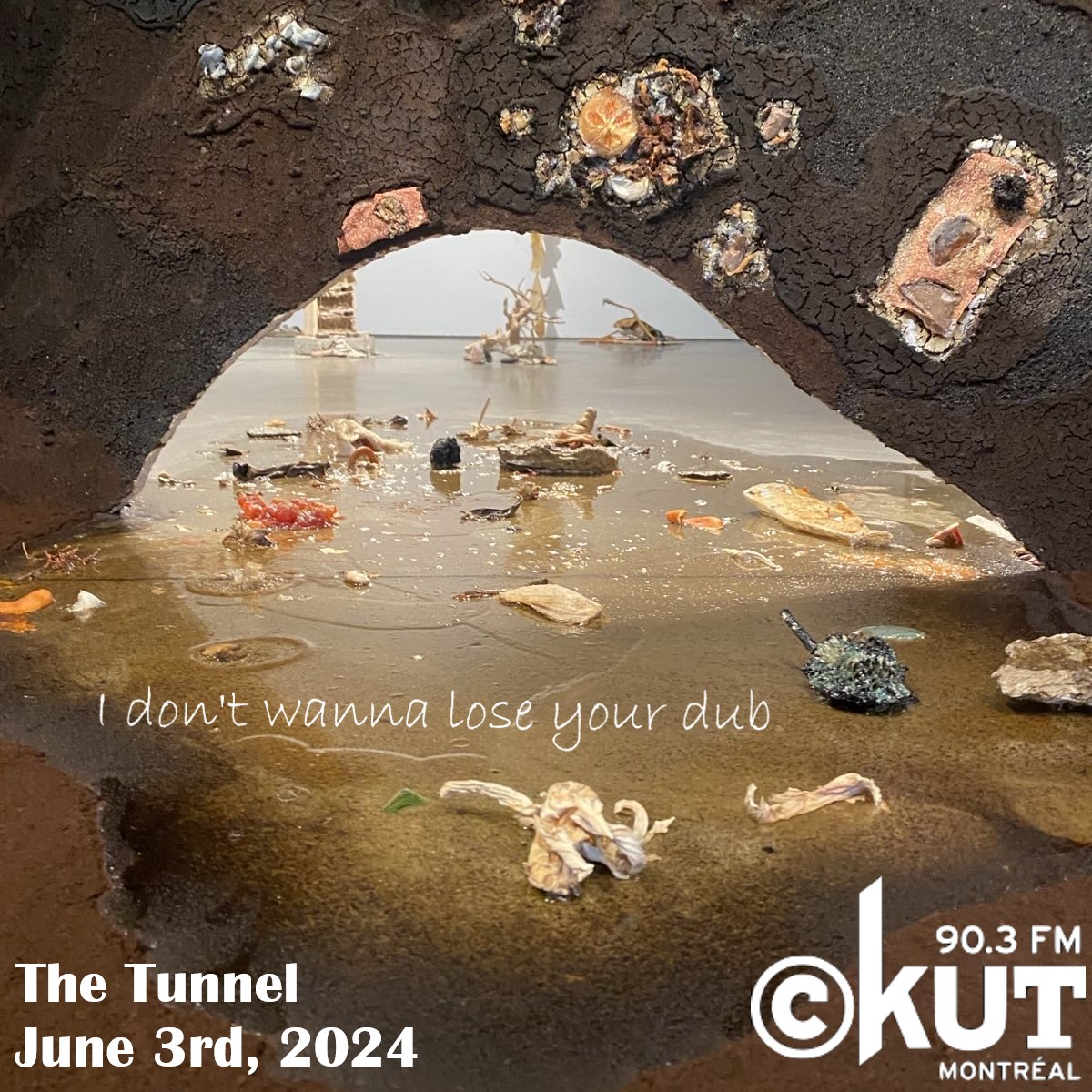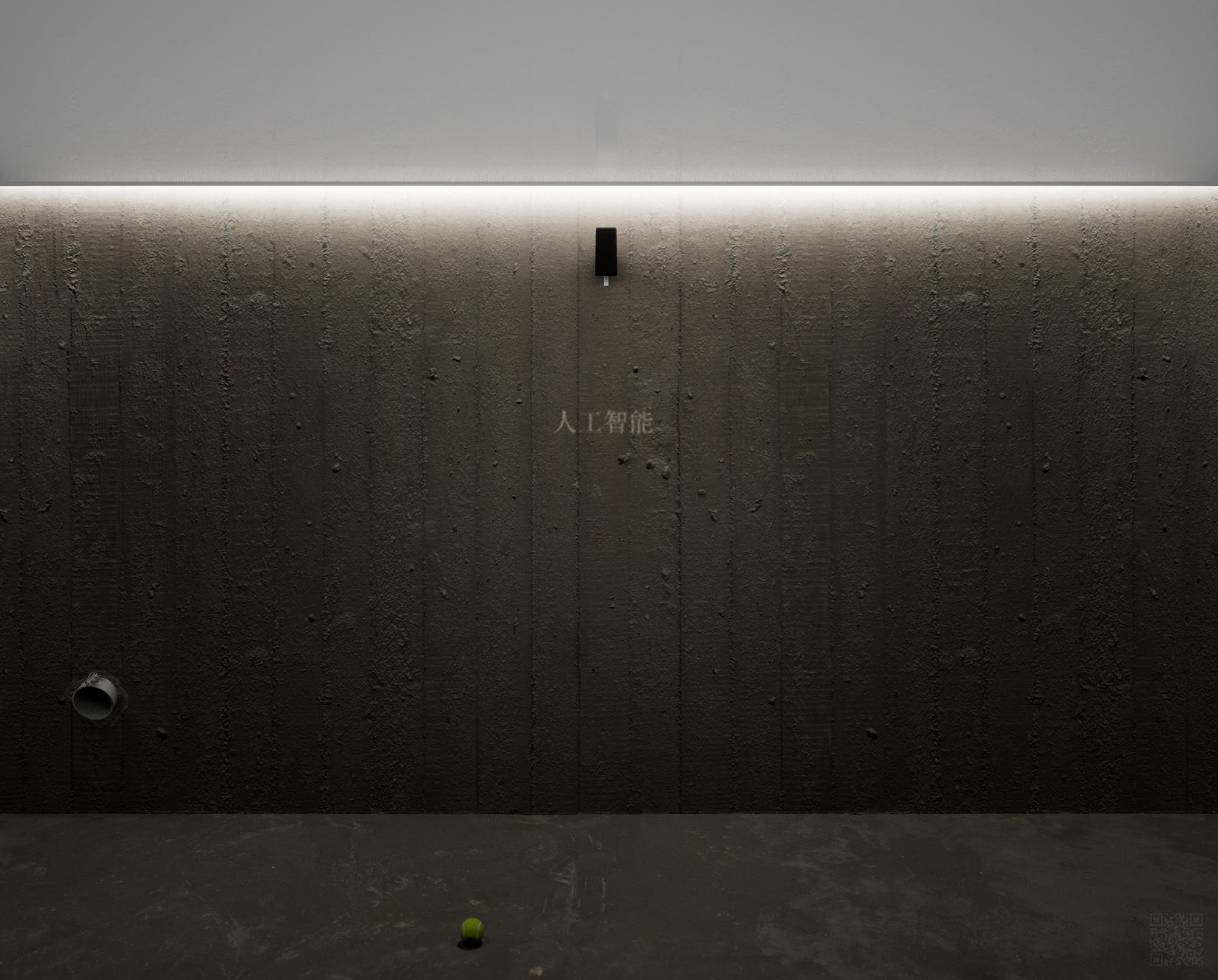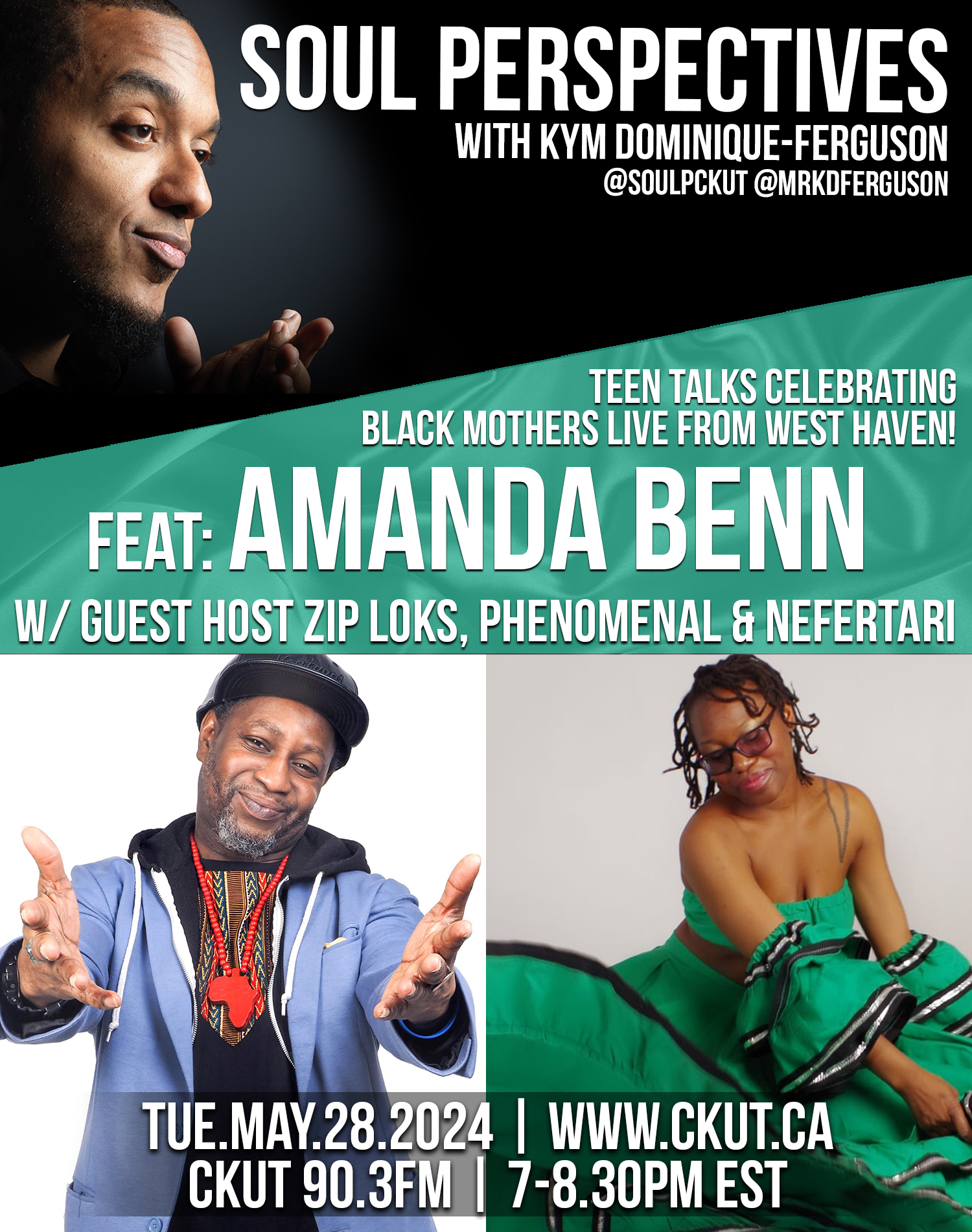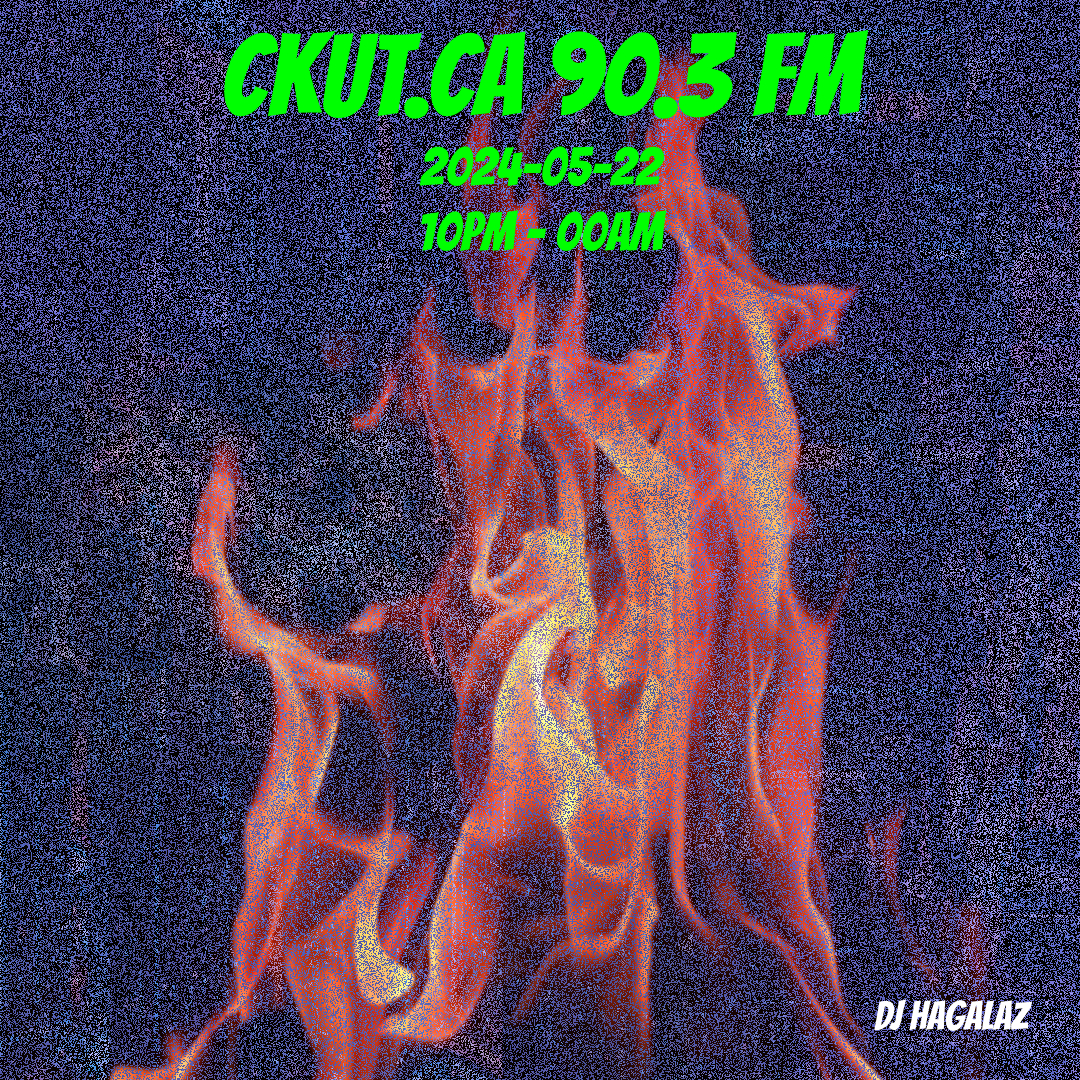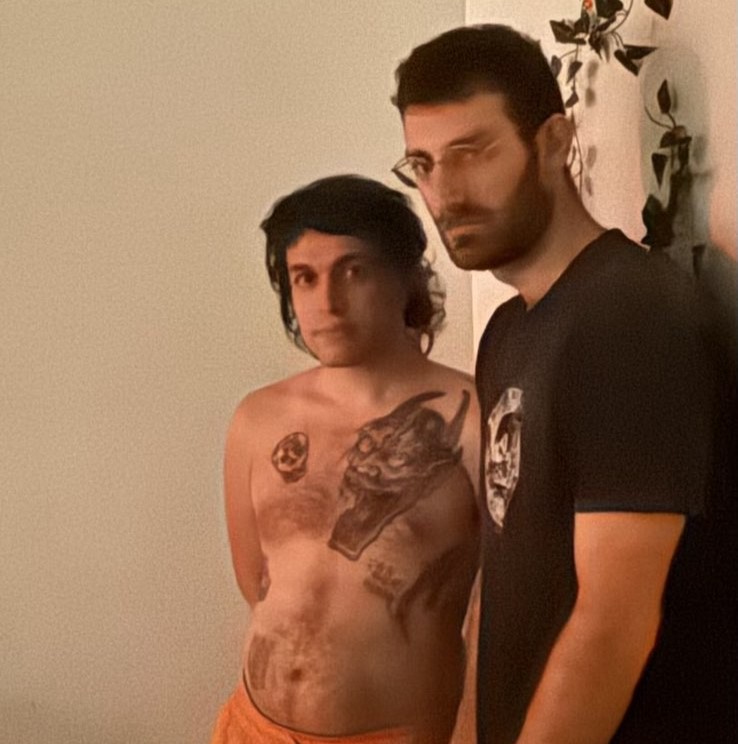Oral History with Former CKUT Music Coordinator Andrea Jane Cornell
In this interview she talks about her passion for the Music Library, the massive toolbox of skills she acquired and some of the more unusual challenges she faced while at CKUT.
Andrea Jane Cornell began listening to the radio show AACK as a teen, and soon after she began volunteering, subbed for Where’s the Beat and then became CKUT’s Music Resource Coordinator and Music Department Coordinator (2006-2011).
The interview, conducted by Louise Burns, CKUT’s Sales and Admin Coordinator from 1991-2023, is transcribed below.
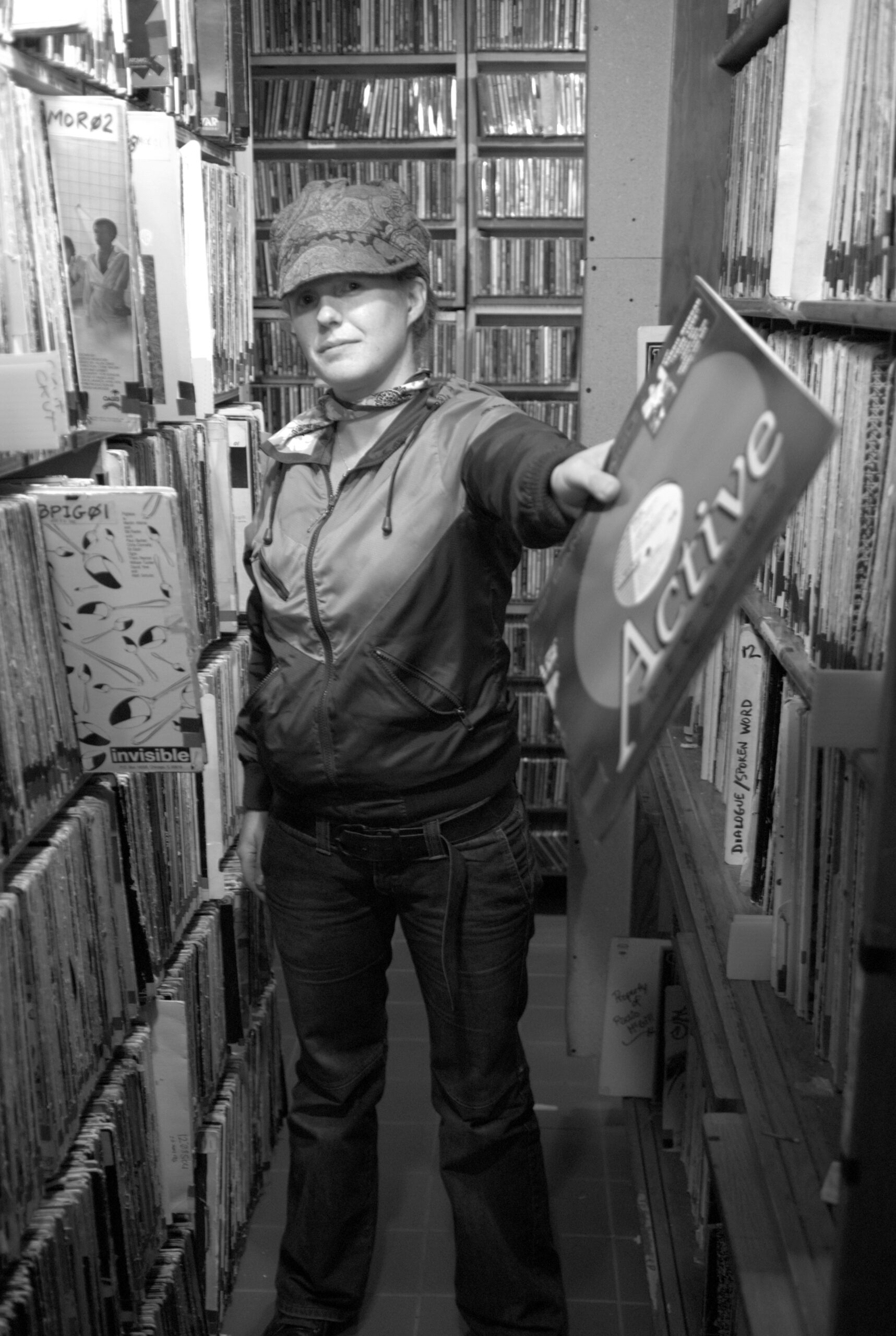
My name is Andrea Jane Cornell or A.J. and I started volunteering at the station at some point in 2006 and began working at the station as well in August of 2006. And I left in January 2011.
What were your first impressions of CKUT? As a volunteer, I imagine.
Well, no. My first impression of CKUT was as a listener. I grew up in a suburb north of the island of Laval, and I used to listen to Brave New Waves, a lot like the kind of music that was there. And then a friend of mine was like, Oh, Fridays, 3 to 5. Listen to 90.3. And I did for many years as a teen until I moved to the city. And the show was AACK. And it was hosted by Lorrie Edmonds and it continued to introduce me to music that I didn’t necessarily have access to growing up in the era where there were no downloads. And in the era where, you know, you could buy records, definitely… but I didn’t really have any income at the time, so I wasn’t buying very many records.
So it was as a listener and as a listener to a specific time, which is always interesting. I didn’t necessarily listen to the radio outside of that. And it wasn’t until Alex Moskos came into one of my classes that Concordia Communications, when he was working here, during the first stint to talk about volunteering, because I hadn’t been listening to the station.
I never heard any essays or anything about that. You could actually become involved. Had I known, I would have been here, you know, a decade before at the time that I actually arrived. But Alex, was like “you can volunteer, you should go volunteer” and it was always in the back of my mind, I should go and volunteer. So I eventually did and started doing Where’s the Beat? because Kathy Kennedy needed somebody to replace her. And then a job opened up, I applied and started being the music resources coordinator and August of 2006. So my impression were and continue to be that it’s a pretty eclectic headspace to listen to and to come down to the station. It’s also a pretty eclectic headspace, just as much as you don’t know what you’re going to hear when you tune in, you don’t know what you’re going to encounter when you come into the station or who you’re going to encounter.
You know, walking in through the door today, so many new faces, but also so many also recognizable faces of both staff and volunteers who, you know, make this thing run.
Mm hmm. So you were, I guess, really a music enthusiast. That’s the kind of thing that drew you in a.
Absolutely.
So then during the duration, like both as a music resource and as then a music coordinator, what were your the things that you were passionate about? And what were some of the programing initiatives that are memorable?
Well, as the resource coordinator, I was incredibly passionate about the library. I love our library here. I love the amazing collection that we’ve amassed and continue to curate and and collect for. And I was really it was my baby and I took as best care of it as I could and loved encouraging people to, you know, divine through the stacks to program shows.
So you open a drawer or you go to a shelf and you just kind of shift your focus, go a little fuzzy and see what stands out. And that’s what you’re going to play in a way, too, because there’s no way to know everything in there. And that’s the way to get yourself familiar with things that you wouldn’t have otherwise programmed, that you might not have been aware of, and that maybe wouldn’t have been something that you would move towards for your show in terms of programming initiatives.
You know, it wasn’t my initiative, but I really enjoyed the arts birthday programming that Charlotte Scott, the culture coordinator at that time when I was was working here, had done where it was long periods of like a full on day celebrating arts birthday of experimental music and a huge cast of characters coming through to program, audio art, noise, experimental music live on the air for, you know, the entirety of the 24 hours almost of Art’s birth – and I really enjoyed that. And then later on, I really am happy and proud to have been able to go out to Suoni so many times and do live broadcasts as June is gruelling here in Montreal. If you’re a music lover and being able to go there and make radio while enjoying a show was something that was really powerful and really engaging for me.
And also, as a listener, being able to just tune in instead of going out to see the show and still feel like you’re there and have it be mediated by somebody who is a volunteer or staff member here at CKUT is always really interesting. That idea of remote broadcasts, whether they’re music or cultural programing, which, you know, brings to mind like New Year’s celebrations with Stretch and just having that radio outside of the station feel to it. And it’s not at the service of promoting anything commercial. It’s promoting a cultural community or a cultural event. And I really enjoyed those things to be able to take the station on the road, you know, to strap a mixer and a bunch of things onto my tricycle and bike up to the salon, set it up and program. Those were some triumphant moments.
And of course, the homelessness marathon is also something that I always was pretty excited about as an idea to be able to go again, take the station on the road and go to the streets and be open and accessible to everyone. Hanging out down at the Needed Friendship Center at the corner of Ontario and Saint Laurent, and speaking to people about issues that are affecting them directly as opposed to speaking, being the talking head and never actually having, you know, the actual people who are dealing with homelessness have a forum to speak. And I was I was really excited about that. And any kinds of those initiatives that happened at the station. While, you know, that continue to happen at the station.
You described even the library in an experimental kind of way. So I feel like your approach was very experimental. So how did it affect you? Like, why did you consider yourself a musician or an artist when you started at the station, and how did that relationship progress?
So when I started the station, I was in my second year of a master’s degree and I had composed music, electroacoustic music, but I had never performed or I had performed once as part of a big collective, but within a, you know, school organized music, dance movement, video multimedia thing. But I’d never performed myself. I never considered myself to be a musician.
And perhaps a composer, but more of an enthusiastic listener. Throughout the time that I started, until I ended, I did develop a musical practice that stemmed from an arts birthday program where I invited Emily Shoes into the studio to-
– improvise the microphones outside.
Exactly. We love doing that, but to improvised completely. And it was the first time and I was dealing playing with things that I had at home. I had like an acoustic bass, I had a couple of other things and it was just that first time to just turn on the mics and see what happens and slowly moved into performing live using a myriad of instruments and found objects and sounds and field recordings and etc..
So in many ways throughout the years, what started happening when you would fill in for a show at two in the morning or whatever is that I started just bringing in either people or just bringing a lot of different sound makers myself and kind of using the studio as a jam room to experiment and encouraging other programmers at the station to push the boundaries of what you can do in the studio because it’s so free here at 60.
And, you know, in Canada, the freedom is a lot larger to go towards experimental stuff, to have barely any sound on the air. There’s nothing coming up to fill the void. It’s really interesting to, you know, have silence, so to speak, and let it linger and and see if there’s anything in that silence to use the Internet streaming device as a processor to process the sounds that you’re making, to create loops, to create feedback, to, you know, throw a microphone out into the parking lot late at night and see what sound you have or in the day.
You can hear a lot of the traffic and crows and other things happening or to literally take yourself outside and perform outside and and have nobody be in the studio. And so it basically, you know, Katie was my stomping ground for becoming a musician in many ways, you know.
And so outside of that experimental artistic process, what about what did you learn about yourself or about engaging with other people in cultural communities and and in this kind of an environment like how would you describe this environment.
In his what didn’t I learn? I learned to give other people a lot of space and to, you know, put the tools into their hands immediately and see what they could do and help if help was needed. I learned to listen. I learned to, you know, facilitate interactions between so many different people. It really shaped the way that I communicate on an everyday basis.
I’m pretty compassionate and open and patience and understanding, and I try to really understand what another person is trying to communicate, whether it be verbally, non-verbally, on the air, in person, whatever it is, and to help them, you know, get what they need and to have access to what they need to, you know, make realize their ideas and put things into action.
I learned how to be an administrator and realized that I kind of like it, though. Not really. I learned how to be a mediator and realized that I’m not so much into that because it’s hard to be the person who, you know, comes down with the verdict when something is, you know, needs to be mediated. I learned about systems, how to program websites, how to write HTML, how to I acquired this massive toolbox that basically, you know, as a staff member and a volunteer, but a lot as a staff member in terms of the amount of responsibility that you have when you work at the station, it’s that the sky’s the limit.
And, you know, the more you know, the more you’re able to do things to make the station a better place for yourself and for others. And it just taught me that I can basically do anything if I if you put your head to it and then once you know how to do it, learn how to delegate and work with others, you know.
What were some of the hardships, interpersonal?
Yeah.
Resources, perhaps.
Exactly. It’s a lack of resources, time constraint, the, you know, mountain of work versus the amount of time that you have in a week. And dealing with complaints, complaints of a nature that are petty about our programing, that, you know, just because you disagree doesn’t mean that it’s not okay. Dealing with programmers who do things that are just shouldn’t be done on the air.
I can think of a programmer who played the police scanner live to air and the police were listening. Yes, they were. And they went to our website and filled out a complaint on the complaint form. But they also came down to the station and the side door was open and they walked into the studio and told the programmer, Stop what you’re doing immediately.
Now, as a listener, if I was listening and even now in hindsight, I’m like, Oh, that must have sounded awesome. You know, we, we took the archives that listen to them. But if you’re going to do something that’s completely illegal, the airwaves do it from another country. Do it so that it’s not recognizable. Don’t broadcast the Montreal Police Freedom banner on the air because there’s a lot of confidential information that goes out on that.
And you might put people in in jeopardy. I mean, I would say nothing was like so hard that it was impossible. The people here made it possible to get through anything that was difficult. And, you know, it’s a pretty tight knit group. Even when it’s not functioning as a as a tight knit group, there’s a lot of good brains and and and resources within the station.
But, you know, you always wish that there were more to make it. You always want to make it better.
Yeah.
What would you say is unique to the station or perhaps idiosyncrasy?
Margo Lane. Margo Lane is like, I like to think of her as like the station manager, the one personality who’s been here for such a long time and whose presence on the airwaves brings me absolute joy and with whom I had so many mystical conversations over the years. I think that the idiosyncratic thing about, say, secret, if there was one idiosyncratic thing, it’s more of a multitude.
It’s the people that come through the door and program shows the email out of different personalities that come in and, you know, program content on the air and volunteer behind the scenes. Like there are so many people here who are exceptionally talented and special and whose presence makes the station as powerful as it is. And some of that doesn’t translate over the airwaves.
But as a staff member, I just feel like I met so many people that really helped shape me as an individual and that were really just endearing to me and very specific to CQ TI, which has that very specific sound. And I just banged on the table. That has a big part to do with that c cute sound is that we’re alive and we’re doing the best that we can with the equipment that we have.
But, you know, I think it would be horrible if we had a perfectly soundproof studio without squeaky chairs. I think that that is really a big part of who we are and it continues to sort of like flaunt our DIY status and flaunt our punk rock years. I think it’s a really part of the iconic sound, so to speak.
That’s great. Thank you, A.J. That was amazing.
You’re welcome.
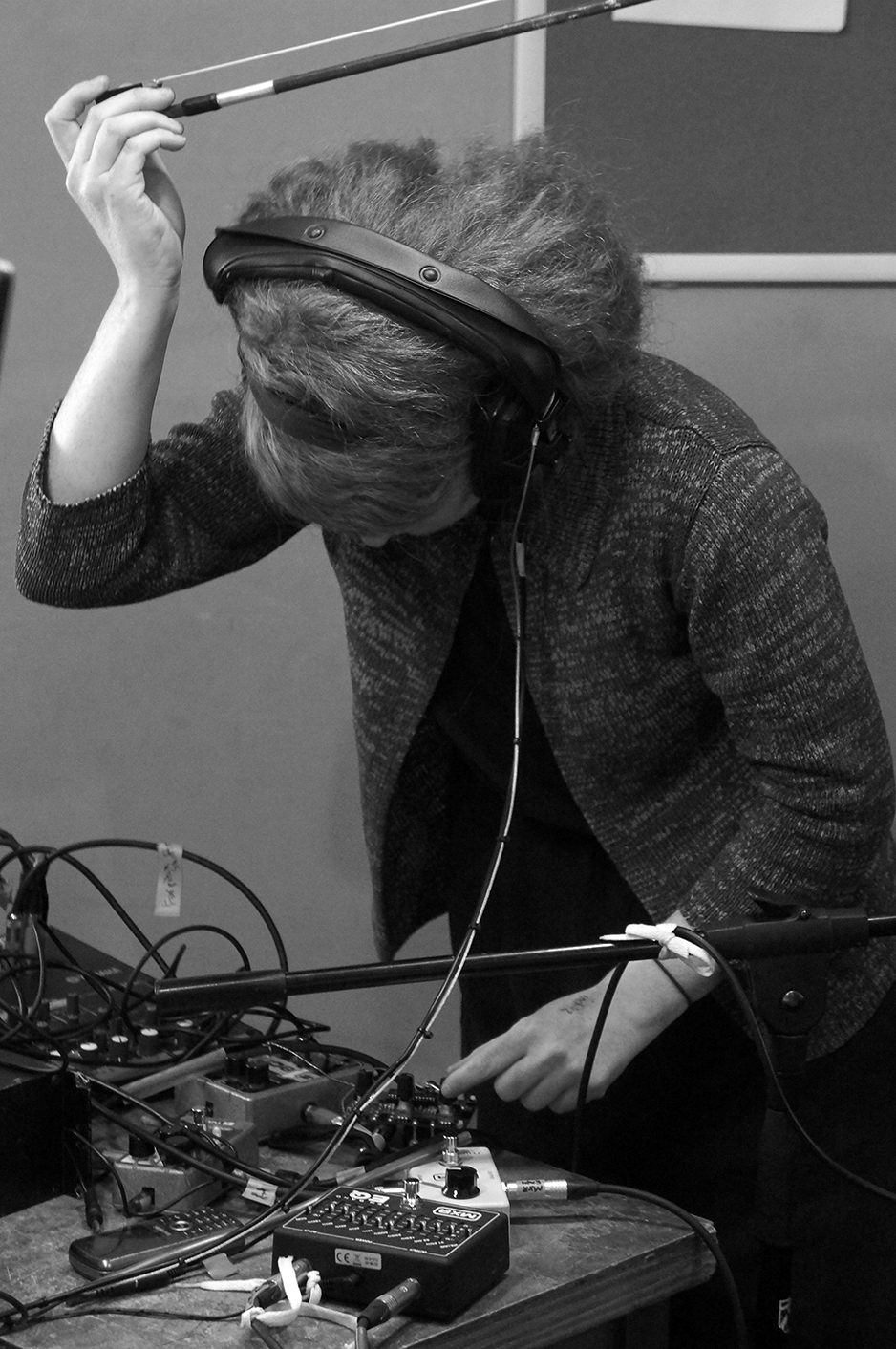
Subscribe to the CKUT Time Capsule Podcast wherever you listen to podcasts:

